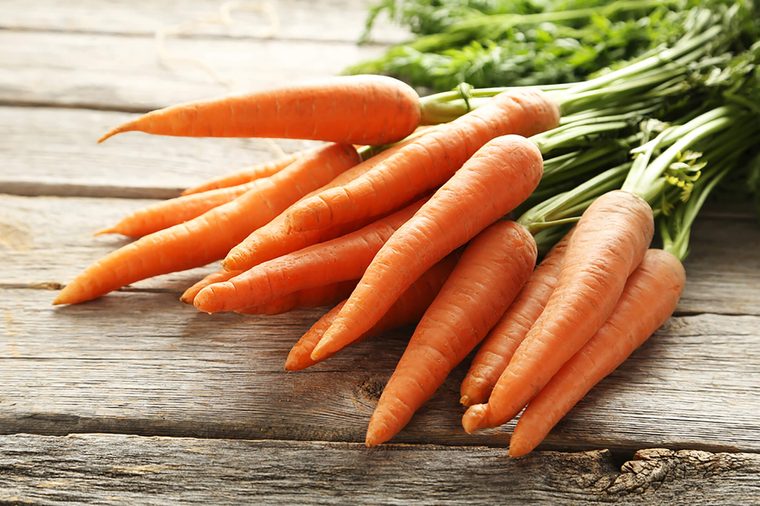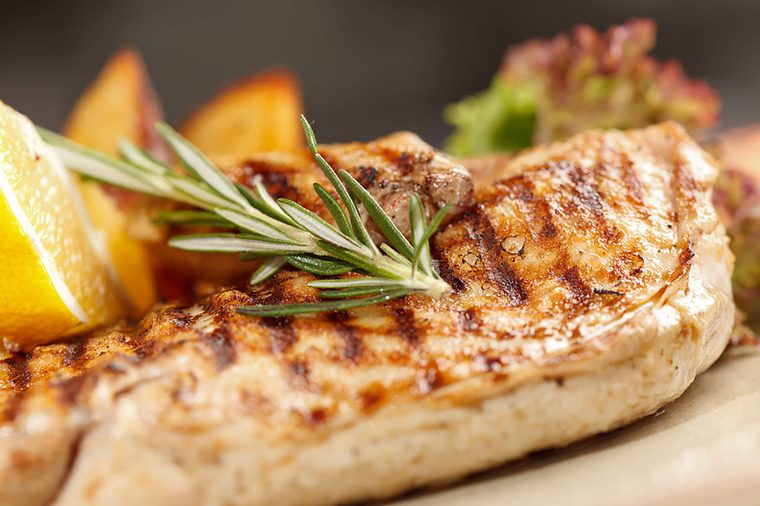
Lean protein
Collagen is the most abundant type of protein in the body, primarily tasked with keeping skin, hair, and nails strong and healthy. To ensure there’s always enough, the body uses protein from food sources as the building blocks to make more. “The protein we eat is broken down into amino acids during digestion, which is then reassembled into collagen,” says Libby Mills, MS, RDN, LDN, spokesperson for the Academy of Nutrition and Dietetics. Fill your plate with lean proteins like chicken breast, turkey, or pork. (These are easy ways to load up on protein.)
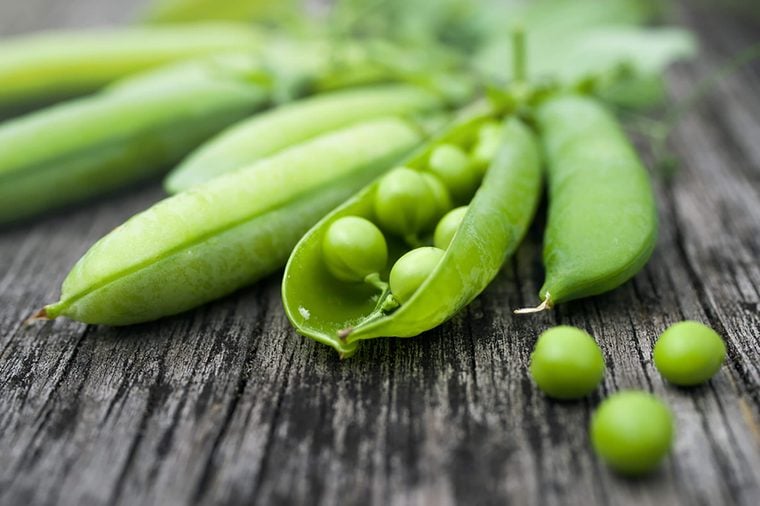
Green peas
Vegetables aren’t typically the highest sources of protein, unless you’re talking about the tiny but mighty green pea, which boasts nearly eight grams in just one cup. If you don’t like them on their own, try throwing some on a salad, adding to soup, or blending with fresh herbs to create a pesto you can toss with pasta. If it’s gorgeous locks you’re after, add these healthy-hair foods to your diet.
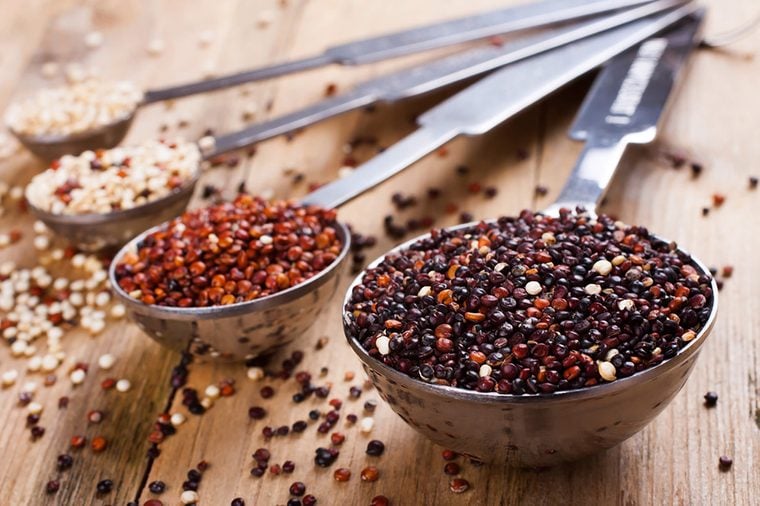
Quinoa
Just one cup of this ancient grain delivers more than eight grams of collagen-supportive protein and a bit of zinc, a mineral that assists with the amino acid-to-collagen transformation. “Zinc and copper help those protein amino acids to become collagen,” says Mills. For whole grains on the go or in a pinch, try Ancient Harvest’s microwaveable organic quinoa pouches or these easy quinoa recipes.
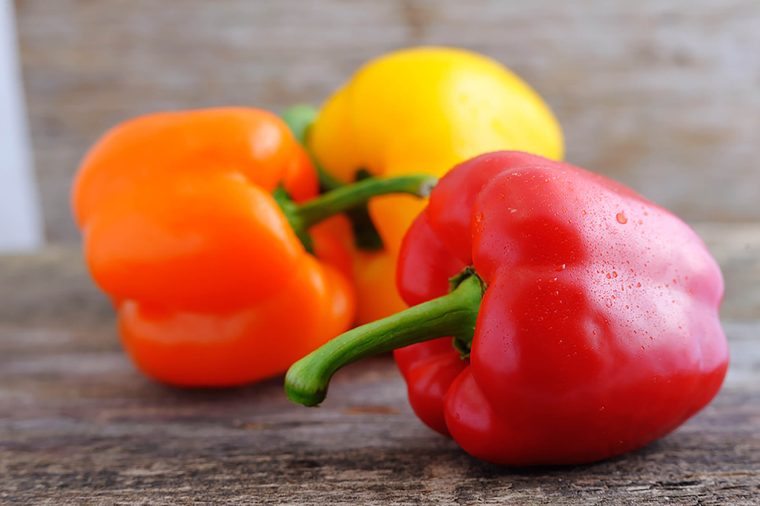
Bell peppers
The antioxidant properties of vitamin C make it an essential component of collagen production; bell peppers, particularly the red ones, are a good source of it. Collagen helps the skin maintain hydration and elasticity, which can help fight signs of aging such as fine lines or wrinkles.
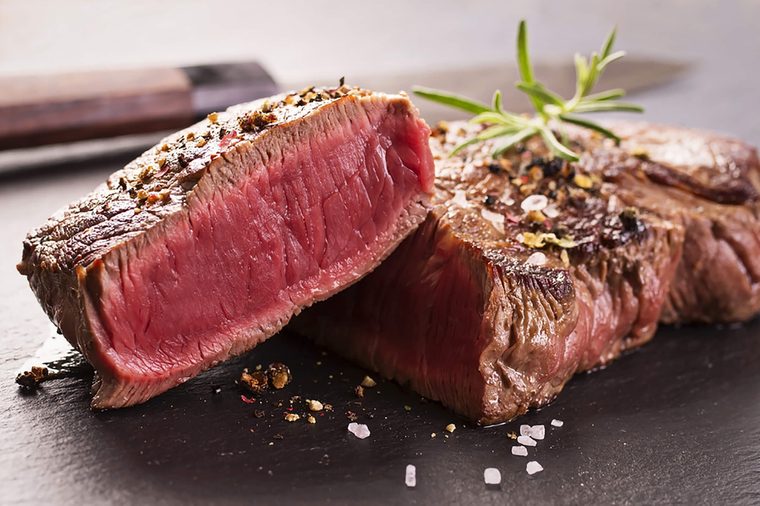
Beef
“Buying meats that have a little tougher cut, like chuck or rump roast, will give you a little more natural collagen breakdown in your food,” says Marisa Moore, RDN, a registered dietitian nutritionist. Check out the other healthiest meats you can eat.
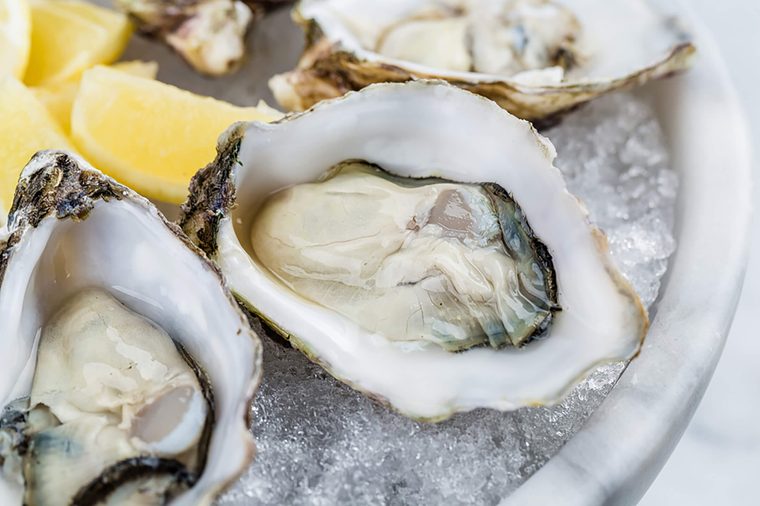
Oysters
Whether fresh or canned, oysters are rich in copper, another mineral that plays a role in collagen production. “Over time, we may not make collagen as well or in as large of quantities, or it may break down faster than before—eating to support its production can help reduce that degradation,” says Mills.
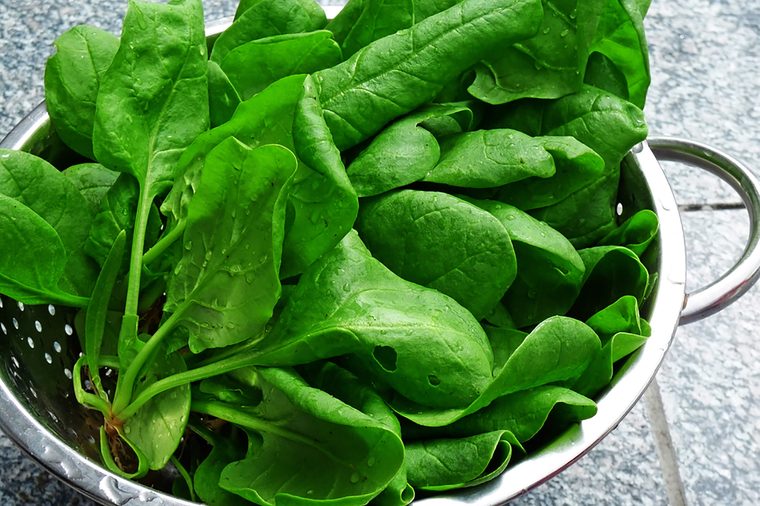
Leafy greens
Dark leafy greens including spinach, kale, mustard greens, and Swiss chard contain a collagen-boosting trifecta of vitamins A and C and zinc. Try salad blends or pre-made “Salad Shake Ups” from Eat Smart, which contain many of the leafy greens your body needs.
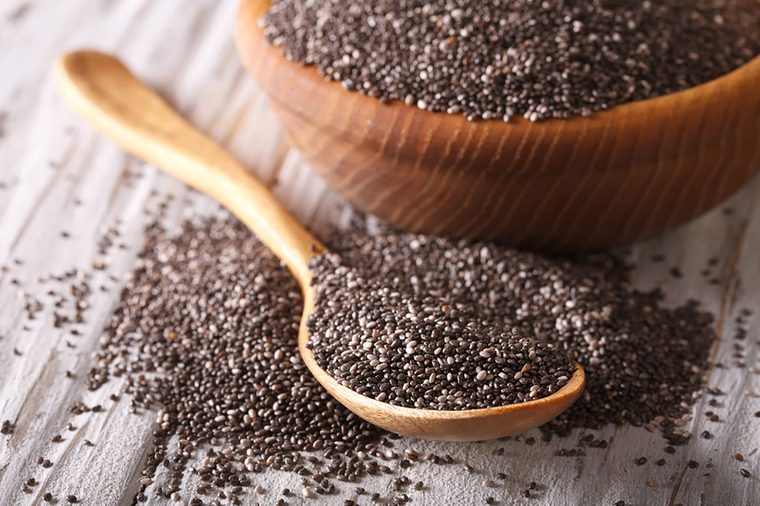
Chia
Chia seeds are packed with protein, despite their minuscule size. Use as a yogurt topping or create a healthier dessert by making a pudding or parfait. (Jar Bar NYC makes dairy-free parfaits in flavors like Banana Bread Pudding, Cinnamon Apple Pie, or Raspberry Coconut Mousse, available for purchase online.)
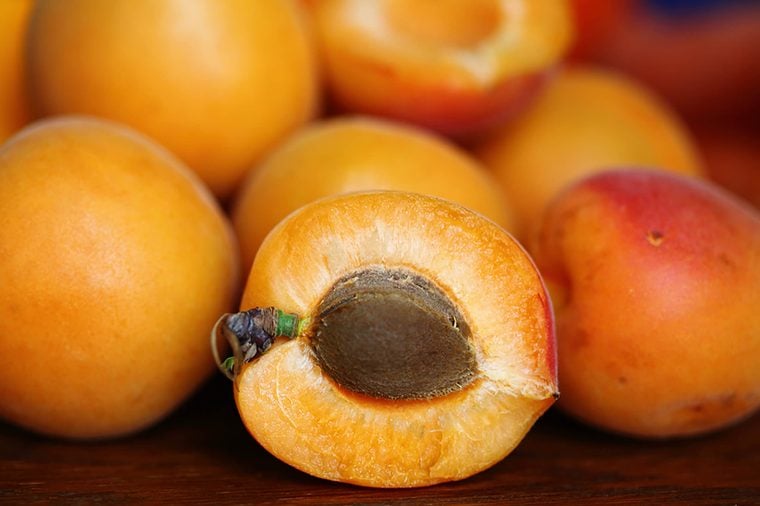
Apricot
This sweet orange fruit is high in vitamin A, a building block of collagen. Enjoy them raw or dried. Find out more antioxidant-rich fruits and veggies.
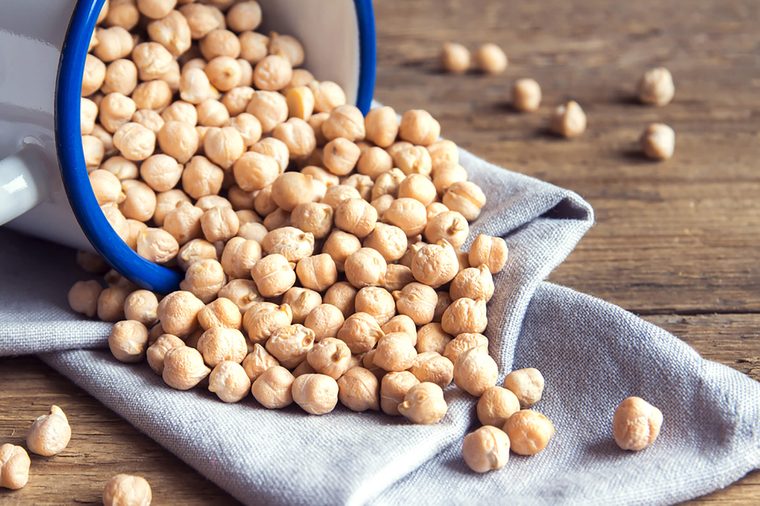
Chickpeas
This legume contains many of the components that support collagen production—protein, vitamins C and A, zinc, and thiamine. “Thiamine is a vitamin that’s very important for collagen production because it helps break down protein,” says Mills. The B-vitamin also aids in skin revitalization and wound healing. Snack your way to healthier skin by keeping chickpea hummus on hand (try Hope Foods’ organic hummus or Lantana hummus, which offers blends made with other protein-rich legumes like yellow lentils, edamame, and black beans in unique flavors). Check out these easy-to-make hummus recipes for more ideas.
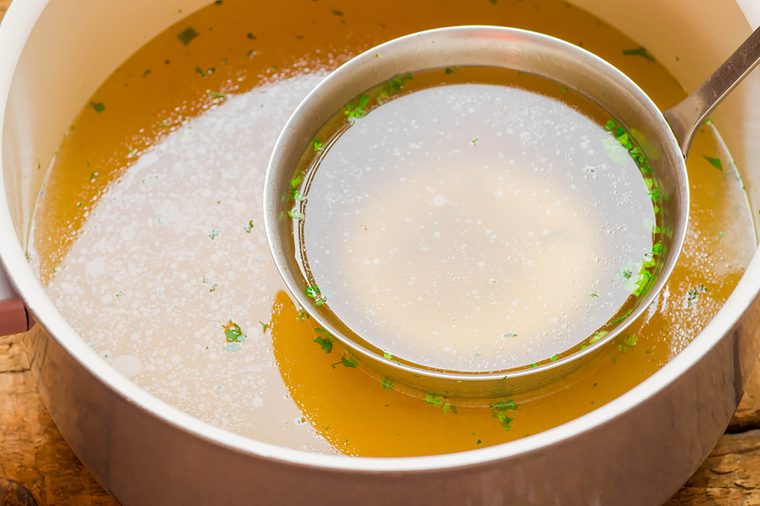
Bone broth
Bones and cartilage from animals like chicken or cows are a goldmine of both protein and natural collagen. Look for brands that use as few ingredients as possible and specify which parts of the animal is used, such as the knuckle or knee joints (try The Osso Good Co. or Bonafide Provisions).Read on for the other foods that help prevent wrinkles for glowing skin.
